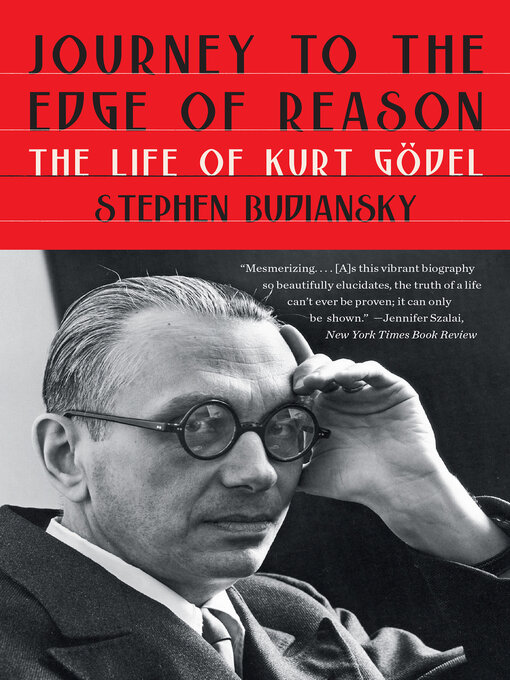The first major biography written for a general audience of the logician and mathematician whose Incompleteness Theorems helped launch a modern scientific revolution.
Nearly a hundred years after its publication, Kurt Gödel's famous proof that every mathematical system must contain propositions that are true—yet never provable—continues to unsettle mathematics, philosophy, and computer science. Yet unlike Einstein, with whom he formed a warm and abiding friendship, Gödel has long escaped all but the most casual scrutiny of his life.
Stephen Budiansky's Journey to the Edge of Reason is the first biography to fully draw upon Gödel's voluminous letters and writings—including a never-before-transcribed shorthand diary of his most intimate thoughts—to explore Gödel's profound intellectual friendships, his moving relationship with his mother, his troubled yet devoted marriage, and the debilitating bouts of paranoia that ultimately took his life. It also offers an intimate portrait of the scientific and intellectual circles in prewar Vienna, a haunting account of Gödel's and Jewish intellectuals' flight from Austria and Germany at the start of the Second World War, and a vivid re-creation of the early days of the Institute for Advanced Study in Princeton, NJ, where Gödel and Einstein both worked.
Eloquent and insightful, Journey to the Edge of Reason is a fully realized portrait of the odd, brilliant, and tormented man who has been called the greatest logician since Aristotle, and illuminates the far-reaching implications of Gödel's revolutionary ideas for philosophy, mathematics, artificial intelligence, and man's place in the cosmos.



